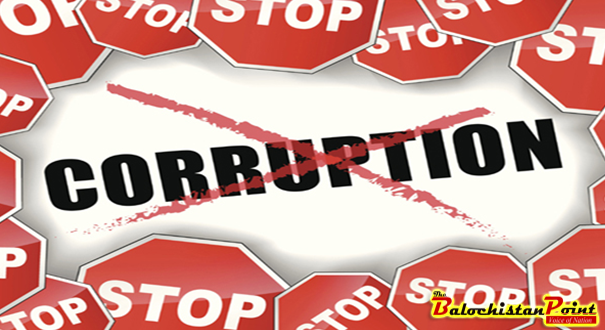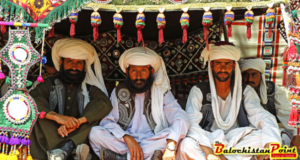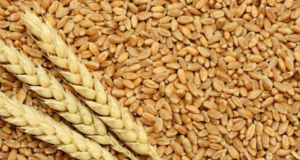By: Suhail Mandukhel
Corruption is a much-practiced evil from which originates countless misdemeanors. It can rightly be asserted that corruption acts like a “wellhead” for other malpractices which in aftermath, destroys the fabric of society. Unfortunately, Pakistan is replete with these all-too-often corrupt practices. M.Ali Jinnah, our founder, was desirous of foundering a corruption-free Pakistan where law would prevail over all. However, his dream was thrown to wolves highhandedly by power-brokers and Pakistan was acutely exposed to chronic waves of corruption. Subsequently, this social evil helped hold a defective system in place which has been paralyzing the existence of merit since independence.
At present, tales of corruption in Pakistan are stretching as far as eye can notice. If somebody happens to unscrew our social container, he will find corruption to the brim.
Of all reasons, the most ingrained one is poverty. In Pakistan, 29.5% people are living beneath the poverty line wherein collateral damages caused by this poverty are locking population in a vicious cycle of unemployment and unfair means of livelihood. In words of Peter Eigen, Transparency International Chairman, “Corruption is a major cause of poverty as well as a barrier to overcoming it”. These two distasteful words- corruption and poverty- reciprocate each other in kind. Everywhere the poor of a society can be readied easily to accept or give any purposeful sop or tip. Reason behind this fact lies in a sentence composed by Arundhati Roy in her novel that, “need is a warehouse that can accumulate a considerable amount of cruelty”. So it is fair to admit that a corrupt society compels even an honest man to engage himself in irregularities- a concept explained by Plato as ‘honest lies’. At short, cause-and-effect relationship of corruption and poverty is exceedingly virulent for the skeleton of a polity.
Second reason behind rampant corruption in Pakistan is deep-seated kinship system. In order to keep loyalties intact down the kinship lineages, our politicians sucker their relatives and electorates through jobberies and patronage-oriented politics. This fact provides us a reason to believe that kinship-based system in Pakistan throttles merit and puts muscles in the concept of nepotism and cronyism. Although Anatol Lieven, author of Pakistan ‘a hard country’, has declared this kinship system a “safety value” for problem-ridden society of Pakistan; yet this can’t be institutionalized due to its unseen demerits. Kinship system is a compromise and provides only a make-do shelter for needy people. As long as kinship system is in effect, Pakistan can’t be jumpstarted unto way of progress and transparency.
Corruption trickles down from the top-tier of a system in general and from bureaucracy in particular. Unless bureaucracy subscribes itself to self-accountability, corruption from “lumpen” of a society can never be wiped out. Furthermore, bureaucracy creates a bridge between government and common masses. If that bridge is rickety and unstable, system overall will be prone to illegitimate practices like corruption and terrorism. In Pakistan, bureaucracy is full of defects. It needs to be reformed on the pattern of what Margaret Thatcher did to bureaucracy of Great Britain. She introduced efficiency unit headed by a senior bureaucrat in 1982 whose duty was to make bureaucracy responsive, efficient and well-managed. Henceforth, reforms in bureaucracy are much-needed and ought to be launched without any delay.
Corruption is more a moral issue than a legal one. It is high time that every citizen should begin to consider it a plague and make it extinct forever.
The writer is student of Law at International Islamic University Islamabad.
Published in The Balochistan Point on August 25, 2017
 Balochistan Point Voice of Nation
Balochistan Point Voice of Nation




